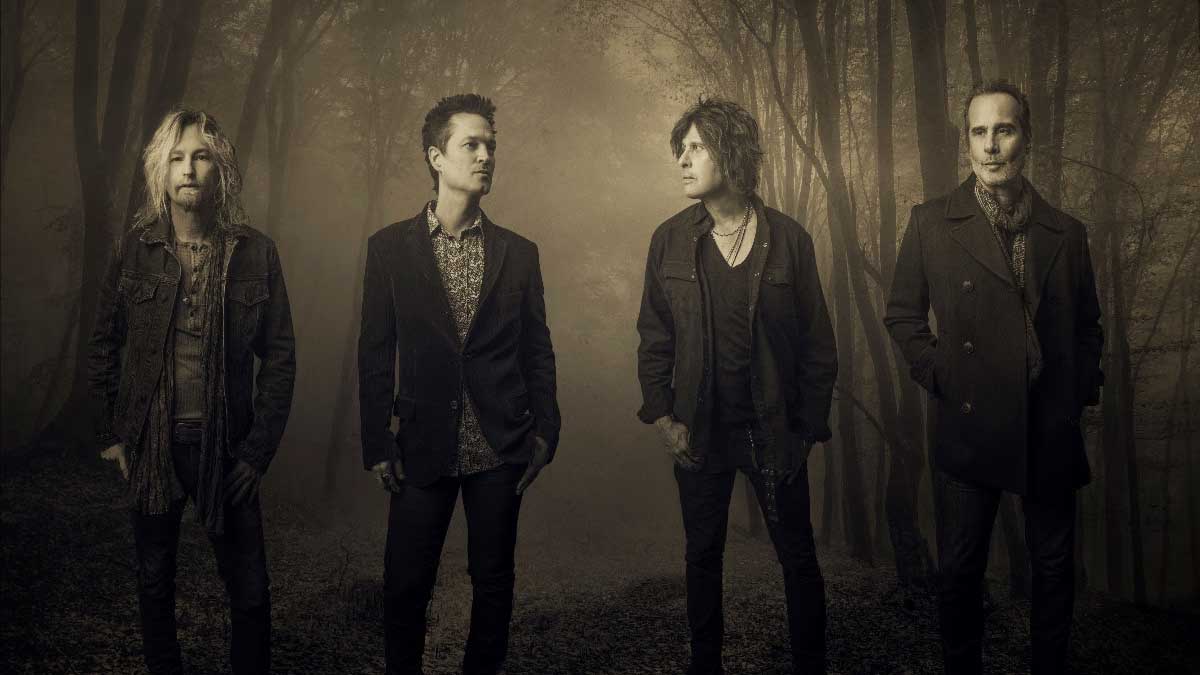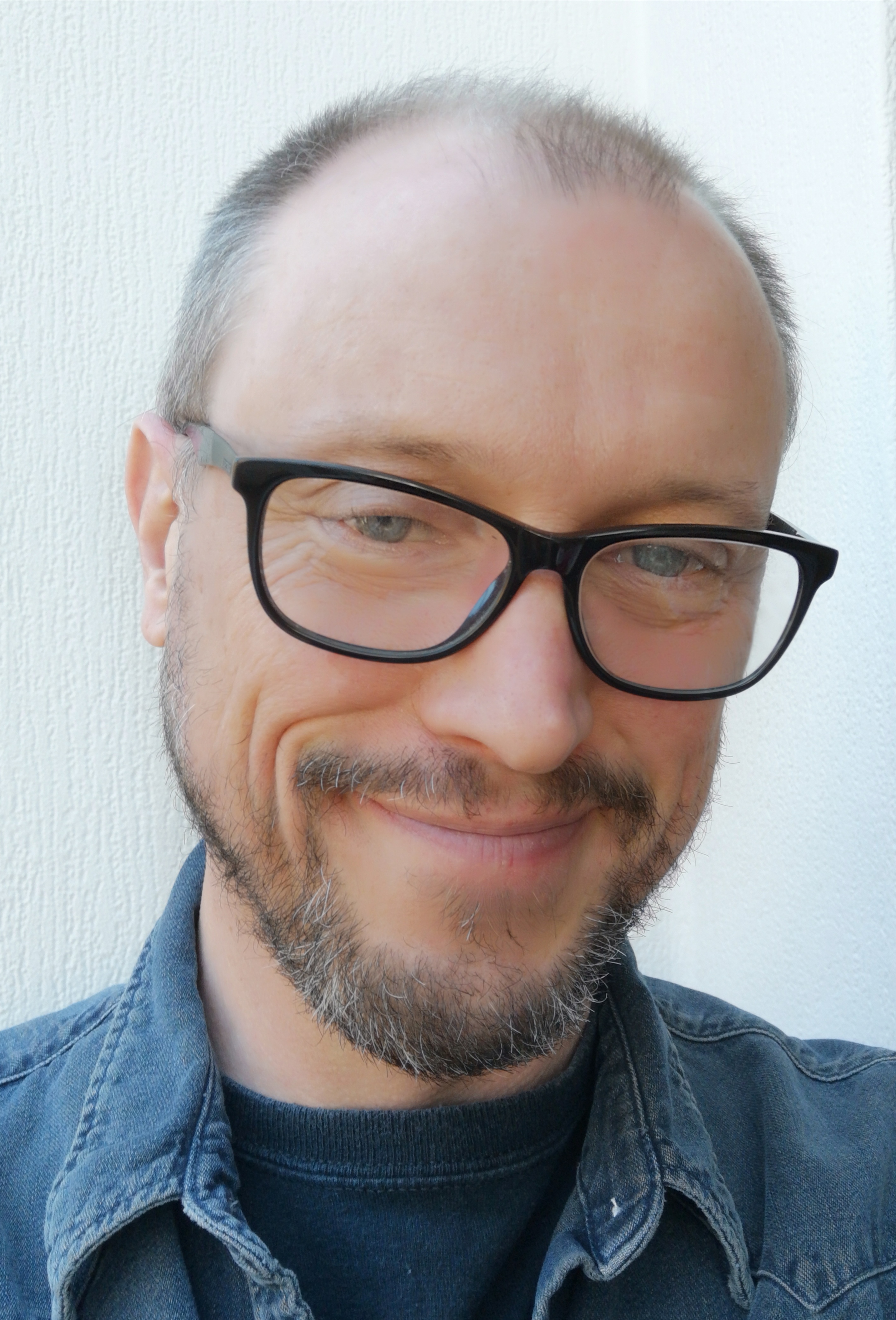“Perdida is the kind of record I’ve always wanted to make,” says Jeff Gutt, who’s now three years and two albums into his tenure as Stone Temple Pilots’ lead vocalist. “You’re on the road for so long and you’ve got all these loud amplifiers and drums… then you kinda want to just sit back and write a song by the fire. It’s good to take a deep breath and put out something beautiful.”
Perhaps unfairly, ‘beautiful’ isn’t the first word that comes to mind when picturing these battle-scarred rockers, who arrived with a bang in 1992 with their debut album Core. So when Perdida was released back in February it was a nice surprise in a long year of many nasty ones.
After 2018’s hard-edged self-titled album, it was a predominantly acoustic selection of pared-back, elegantly arranged songs, heavy with sad, wistful titles such as Fare Thee Well, Three Wishes and I Once Sat At Your Table. There’s a little Sticky Fingers in here (She’s My Queen’s strummed riff has a hint of Moonlight Mile about it), and also some lilting bossa by way of Laurel Canyon (the achingly lovely Years, sung by the band’s bassist/songwriter Robert DeLeo), all with a dusting of exquisite strings, alto sax, flute, even a marxophone (a fretless zither).
These layers add colour to a warm album rich in folk, flamenco and high lonesome inflections. As catchy mid-tempo closer Sunburst tails off and the band fade away, they also come into clearer focus perhaps, as people.
This is music made by middle-aged men who have been through some shit of late. Estrangement, custody battles, heartbreak, loss (for which ‘perdida’ is the Spanish word, in feminine form) – all these heavy subjects are here, but sublimated rather than brashly stated.
“There’s plenty of things to be melancholy about,” Gutt says with a sad laugh. “This record was more for us, and for all of us it’s a very personal one, because we talked about things on the road, about what each other was going through. If I only wrote about myself I would have run out of stuff a long time ago. I try to see life through other people’s eyes, and come from a place of compassion."
When Gutt first auditioned for the band (to replace Chester Bennington, who in turn had replaced original frontman Scott Weiland) it clearly helped that he could punch the same tonal buttons as Weiland, who helped the Pilots secure their place at grunge’s top table back in the 90s with their early albums.
Crucially, Gutt also has real songwriting simpatico with the longstanding members – Robert DeLeo, guitarist brother Dean DeLeo and drummer Eric Kretz, in whose Pasadena studio Perdida came together.
Dean remembers sitting with Gutt, an acoustic guitar in his lap, “and Jeff was coming up with his melodies, and that’s when we felt the songs were really taking shape. That was the beautiful moment when the album opened up and allowed me to really know what the songs were going to be.
"Jeff is brilliant at that. It was a lot like working with Scott. Jeff had this really great sense of what each song was asking for, and a great sense of melody and delivery. His vocal performance on this album is incredible.”
“Jeff really stepped up,” adds Robert. “He needed to. It is a very personal record, and he really did amazing work at seeing where he was with this music personally. After making one record [with the band, 2018’s Stone Temple Pilots] and then going on to this, you either feel it or you don’t. And he did feel exactly where it needed to go. We had time on the road to express to each other where we were and mould this into what it became.”
Looking back at the STP catalogue, they’ve always flavoured their heavier moments with sweeter, gentler interludes. They’ll always be known for amped-up anthems like Sex Type Thing, Plush and Interstate Love Song, but the roots of this latest album are in the band’s softer moments, such as Creep (from that 1992 smash debut Core), And So I Know (Tiny Music… Songs From The Vatican Gift Shop), A Song For Sleeping (Shangri-La Dee Da).
“This time we dedicated a whole album to that expression rather than flavours of it,” says Robert. “Everyone has a style they listen to, but it really comes down to what’s deep inside your soul, and that can come out in many different ways. As a listener I find Brazilian and bossa and country music to be very soulful, and that’s kind of where my expression comes from and goes to."
The DeLeo Brothers’ eclectic musical sense was forged in the late 60s/early 70s, as they grew up in a multi-generational, music-loving household in New Jersey, where you could be soothed by the sounds of Antonio Carlos Jobím, serenaded by Andy Williams or grabbed by the throat by Hendrix.
“That was always the blueprint,” says Dean. “If you go back to Core, it was always about staying away from typical ‘rock’ power chords, and using beautiful, non-conventional ones. We took a lot from Jobím, from all that great sixties and seventies pop – the stuff Richard Carpenter was writing [with The Carpenters] – but we’d play it on a Les Paul through a Marshall.”
If these iconic rock implements are on Perdida, then they’re dialled down to a tasteful level, in keeping with the downbeat quality of the album as a whole.
In a parallel universe, 2020 would have seen the band take the album on tour; the foundation of an acoustic set encompassing those more subtle, unplugged moments of the past nearly 30 years. But even before COVID could do its worst, the tour was cancelled when a disc in Jeff Gutt’s spine disintegrated, leading to invasive replacement surgery and a painful recovery process.
He’s fully restored now and raring to go, but for the time being he and the other three Pilots are biding their time, writing at their homes in LA, offering up live-streamed performances. And they’re all rightly proud of this year’s album.
“It’s so refreshing to be in a band of professionals,” Gutt enthuses. “If the DeLeos walk in and say: ‘I’ve got a song’, you think: ‘Well this is going to be great!’ It’s been a huge thing for me to join such amazing dudes. Now I’ve just gotta not screw it up."

